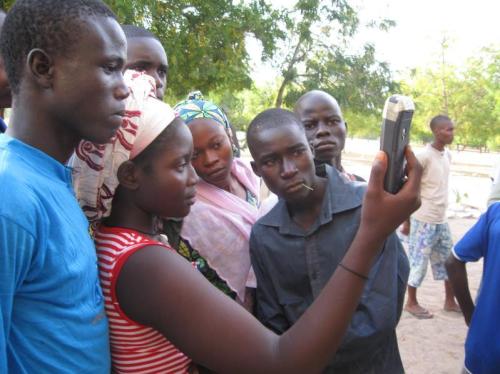Last Friday, GBI sponsored a Brown Bag lunch at USAID featuring Linda Raftree (@meowtree), Senior ICT4D Advisor at Plan International USA, to discuss her experiences on her digital participatory mapping project in Cameroon, lending insight on how the team got it off the ground.
Utilizing the mapping platform Open Street Map and crowd-sourcing tool Ushahidi, Raftree and Plan International’s Youth Empowerment through Technology, Arts and Media (YETAM) project, aims to reduce violence against children and increase youth participatory governance.
During her discussion last week, she referenced how digital community maps have replaced the need for paper-based diagrams since they can be shared or updated, to put rural areas like Ndop, Pitoa and Okola, “on the map”.
The more pragmatic purpose of being, “on the map,” Raftree alluded, is to see where infrastructure and services are being provided by local councils. Maps illustrate the uneven distribution of funding and services, and show what areas need more inclusion, holding governments to their development responsibilities.
To ensure local participation and encourage youth empowerment for the three principal components of her project—maps, video, and art—Raftree advised some of these following elements:
- Ask community leaders, and youth the information they want to put on the map. Raftree found that the youth wanted to know where all of the chieftain of the surrounding villages lived since traditionally greeting them first when arriving to a village is a respectful custom. What an international organization, or its stakeholders, want does necessarily line up with what the community needs or finds relevant.
- Hire local ICT experts. She had found a local GIS expert named Ernest on Twitter and through Limbe Labs (now Activspaces). Without him, Raftree admitted, the project would not have been nearly as successful, or predicted to be as sustainable. Local ICT experts know the language, law of the land, and projects can be easily supported by them teaching others in the community how to maintain the mapping systems long after outside organizations leave.
- Engage decision makers. There is usually a hierarchy within communities, so involving big players is imperative for successful deployment. Both to evade bribery—the team had youth carry around a letter signed by the local mayor stating it was okay for them to collect information—and to make leaders accountable for gaps in funding and services.
- Record it. The Cameroonian youth went around with video camcorders, and recorded interviews they had with leaders of certain institutions, and members of the community. For example, they went around to schools and interviewed the headmasters about what resources they had at the school, and with women on why they did not register their newborn children. The benefit of this is two-fold. They raised the headmaster’s awareness on for the importance of keeping data on key indicators of the school (numbers of students, benches, attendance, teachers), Raftree stated, while making politicians accountable to the imbalanced circulation of disbursement.
- Mix technology with non-technology. The art portion of the project, where the youth draw pictures of social issues existing within the community—such as alcoholism, drug use, and domestic violence—raised problems that were uncomfortable to record on film or talk about. Despite a lack of sound or words, art is still a powerful visual empowering the community to engage in a dialogue about taboo subjects.
The end result of all these steps in the 3 districts in Cameroon? Leaders acknowledged giving funds to central areas, and began to allow youth to take part budget meetings. The youth were given a voice in a place where they were never even part of the discussion.
Although Raftree covered a lot of problem areas that could have arisen in a community mapping project, she recognized that issues such as connectivity and ICT training, are still barriers to entry that need to be addressed for a project’s overall sustainability.
How about the next steps for the Plan International’s YETAM project in Cameroon?
Having youth continue to follow-up with database collection, making community councils accountable for their findings, and integrating information into Plan’s overall decision making.
For more information regarding upcoming events, subscribe to our newsletter, The Spectrum.








































